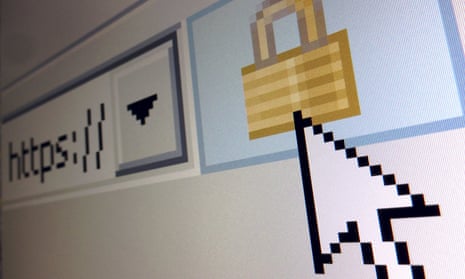The European commission’s General Data Protection Regulation, voted on last week, aims to give consumers more control over their personal information and more transparency on how their information is used by companies and governments.
As far as adult internet users are concerned, the reforms presented in these new regulations are mostly empowering. But, whether intentional or not, they could wind up disempowering and disenfranchising millions of young internet users.
When first drafted, the regulations generally reflected the status quo in most of Europe, the US and other regions, by requiring parental consent before commercial services could process personal information from children under 13. But, at the last minute, the age was raised to 16, effectively banning children from accessing Facebook, Snapchat, Instagram and other services without parental consent. After an outcry from technology companies and child protection organisations, the provision was watered down with the proviso that member states can lower it back to 13 .
We don’t yet know how individual countries might respond to the age provisions in the regulation, but Janice Richardson, author of the Council of Europe’s internet literacy handbook, urges governments to take their time deciding and “consult with all sectors including parents, children, experts, schools and regulators” before making a decision.
Social media, even when it’s operated by private companies, is where young people go to express their opinions, interact with peers and family, learn about the news, as well as obtain health information and access to services. Depriving youth from access violates their rights of expression and information as well as their ability to participate in civic engagement.
Of course, there will be teens who are able to get their parents to fill out the necessary forms to allow them to participate in social media, discussion forums and other online venues but there will be others who – for a variety of reasons – will be unable to obtain this permission. This could result in unequal access for children whose parents may not have the literacy, local language skills or technology skills to provide the consent, as well as those parents who may be afraid to fill out forms that they fear might get into the hands of immigration authorities or other government officials.
In increasingly diverse societies, I fear a lack of access to the internet could interfere with the ability of some youth to assimilate into new environments and to explore social, political and religious values that may differ from those of their parents. This is a time when we should be breaking down barriers to interaction and social engagement among youth, not erecting new ones.
While social media has been linked with the radicalisation of some teens, young people are able to use online platforms to connect with each other, promoting understanding rather than violence and extremism. Nobel prize winning youth activist, Malala Yousafzai, for example, has advised social media is the easy place to start taking action against injustice.
The reality is that young people have rights and it is the responsibility of government to protect those rights, regardless of whether their parents are willing to fill out permission slips. In the US, we have a first amendment that says nothing about having to be over a certain age to enjoy the right to free speech. In Europe, countries have ratified the UN Convention on the Rights of the Child which grants children “the right to freedom of expression” including the “freedom to seek, receive and impart information and ideas of all kinds, regardless of frontiers, either orally, in writing or in print”. And there is nothing in that convention that requires parents to sign off on those rights.
Legal and moral issues aside, there are also practical considerations. Even the current law, which effectively restricts access for children under 13, is ignored by millions of pre-teens around the world who lie about their age to access social media, so it’s hard to imagine how any government expects teens to refrain from doing likewise. The real effect of this regulation is to encourage European teens to ignore the law and lie.
The good news is that it’s not too late for individual countries to reject the call to limit the free speech of teens and keep the age for participation at 13 where it is now in most countries.
Larry Magid is CEO of ConnectSafely.org, a non-profit Internet safety organization that receives financial support from some social media companies that might be affected by these regulations
